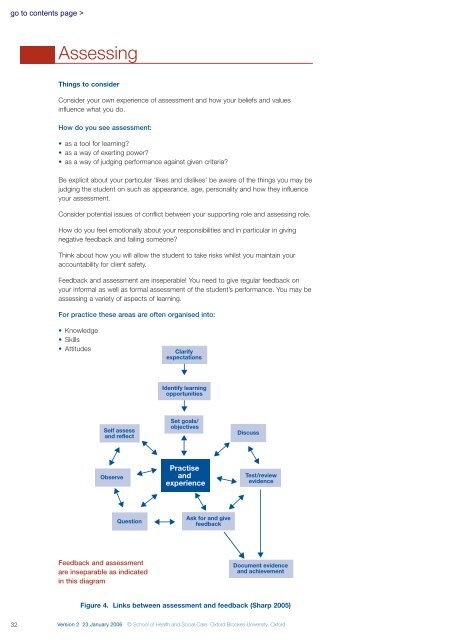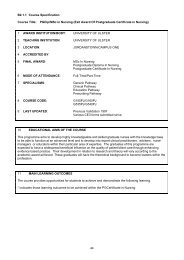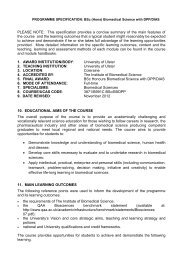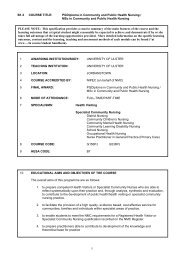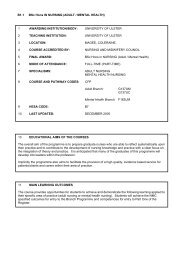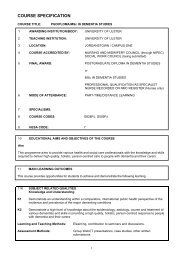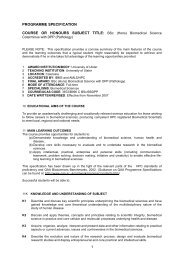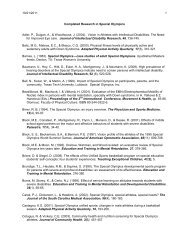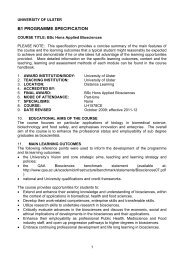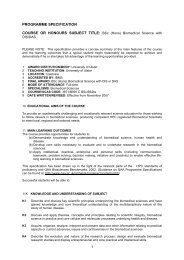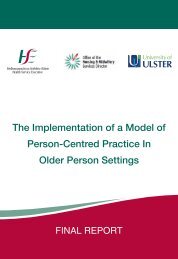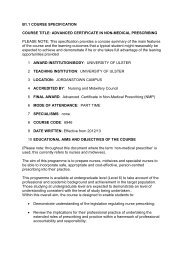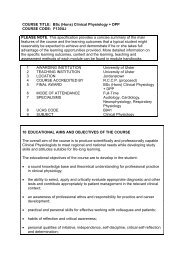050519-2 mentor handbookf - The INCLEN Trust
050519-2 mentor handbookf - The INCLEN Trust
050519-2 mentor handbookf - The INCLEN Trust
You also want an ePaper? Increase the reach of your titles
YUMPU automatically turns print PDFs into web optimized ePapers that Google loves.
Assessing<br />
Things to consider<br />
Consider your own experience of assessment and how your beliefs and values<br />
influence what you do.<br />
How do you see assessment:<br />
• as a tool for learning?<br />
• as a way of exerting power?<br />
• as a way of judging performance against given criteria?<br />
Be explicit about your particular ‘likes and dislikes’ be aware of the things you may be<br />
judging the student on such as appearance, age, personality and how they influence<br />
your assessment.<br />
Consider potential issues of conflict between your supporting role and assessing role.<br />
How do you feel emotionally about your responsibilities and in particular in giving<br />
negative feedback and failing someone?<br />
Think about how you will allow the student to take risks whilst you maintain your<br />
accountability for client safety.<br />
Feedback and assessment are inseperable! You need to give regular feedback on<br />
your informal as well as formal assessment of the student’s performance. You may be<br />
assessing a variety of aspects of learning.<br />
For practice these areas are often organised into:<br />
• Knowledge<br />
• Skills<br />
• Attitudes<br />
Feedback and assessment<br />
are inseparable as indicated<br />
in this diagram<br />
Figure 4. Links between assessment and feedback (Sharp 2005)<br />
32<br />
Version 2 23 January 2006<br />
© School of Health and Social Care, Oxford Brookes University, Oxford


